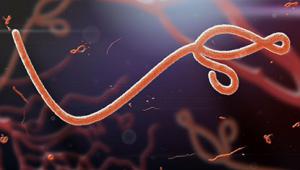The Overseas Development Institute report released today, suggested that the recent Ebola outbreak revealed “blind spots” of international aid programming in the country despite $360m having been pumped into Sierra Leone’s health system since 2002.
Its After Ebola report said the so-called “blind spots” in policy and practice occurred because the complexity of basic interventions were taken for granted, the plurality of health providers were overlooked and a focus on discrete units of health systems rather than the connections between them.
This resulted in a health system that was understaffed and ill-prepared to deal with the Ebola outbreak, the report noted – an additional 21,000 medical staff had to be recruited to fight the disease.
Approximately 11,000 people died from Ebola over the last year, almost 4,000 of them in Sierra Leone. However, the ODI said it is not just Ebola itself that is leaving the Sierra Leonean population fatally exposed.
According to the report, national immunisation days, a strategy used to monitor health and nutrition indicators, were cancelled because of the Ebola outbreak, leaving thousands of children exposed to polio and measles.
Women have been deterred from attending antenatal visits or giving birth in health centres for fear of getting Ebola. There is also a reported increase in teenage pregnancies as a result of school closures.
The ODI argues that capacity building in Sierra Leone’s health sector needs to become “smarter” as the government and development partners begin to plan for post-Ebola health support.
“The delivery of quality services demands a smarter model of capacity building that is both people-centred and systemically aware,” the report stated.
Report author Lisa Denney said: “Aid has played an important role in development progress in Sierra Leone over the last 13 years with some important health advancements, but our research over the last two years has found that gaps in Sierra Leone’s health system were longstanding in nature, and must be addressed by both the government and international donors, otherwise the country will be at the mercy of the next health crisis.”








